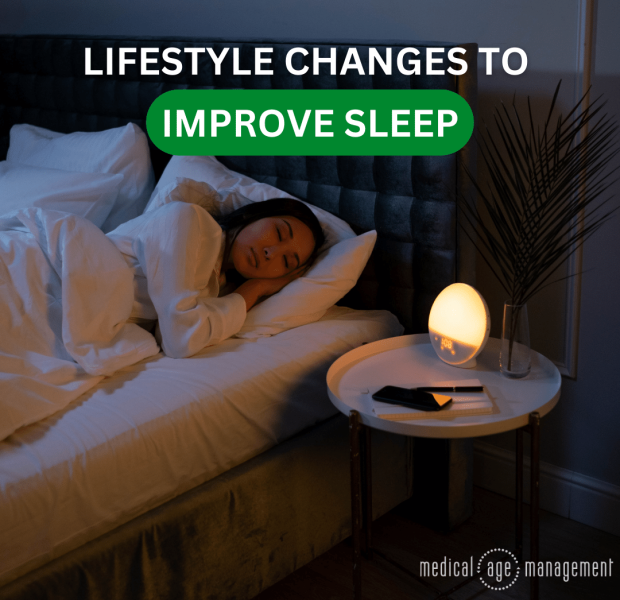Creating a Sleep-Optimized Environment
Creating a sleep-friendly environment is crucial for improving your overall sleep quality. One of the first steps in achieving this is to make sure your bedroom is a calm and peaceful space. This means keeping the room dark, quiet, and cool. Consider investing in blackout curtains, earplugs, or a white noise machine to help block out any disruptive sounds. Additionally, maintaining a comfortable temperature in your bedroom can also help promote better sleep.
Another important aspect of creating a sleep-optimized environment is to minimize screen time before bed. The blue light emitted from screens can interfere with your body’s natural sleep-wake cycle, making it harder to fall asleep. Try to avoid using electronic devices such as phones, tablets, and computers at least an hour before bedtime. Instead, consider reading a book, practicing relaxation techniques, or engaging in a calming activity to help prepare your mind and body for sleep.

Lastly, make sure your mattress and pillows are comfortable and supportive. Investing in a quality mattress and pillows that suit your sleeping preferences can make a significant difference in your sleep quality. It’s also important to replace your mattress every 7-10 years to ensure optimal comfort and support. By creating a sleep-optimized environment, you can greatly improve your chances of getting a restful night’s sleep.
Establishing a Consistent Sleep Schedule
Establishing a consistent sleep schedule is essential for improving your sleep quality and overall well-being. Going to bed and waking up at the same time every day helps regulate your body’s internal clock, making it easier to fall asleep and wake up feeling refreshed. Try to aim for 7-9 hours of sleep each night, as this is the recommended amount for most adults.

In addition to maintaining a consistent sleep schedule, it’s important to create a bedtime routine that helps signal to your body that it’s time to wind down and prepare for sleep. This can include activities such as taking a warm bath, reading a book, or practicing relaxation techniques like deep breathing or meditation. By establishing a bedtime routine, you can train your body to recognize when it’s time to sleep and improve your overall sleep quality.
If you find yourself struggling to fall asleep or stay asleep, it’s important to avoid napping during the day. While a short nap can be beneficial for some people, excessive napping can disrupt your sleep cycle and make it harder to fall asleep at night. Instead, try to stay active during the day and avoid caffeine and heavy meals close to bedtime. By establishing a consistent sleep schedule and bedtime routine, you can greatly improve your sleep quality and overall well-being.
Practicing Relaxation Techniques Before Bed

Practicing relaxation techniques before bed can help calm your mind and body, making it easier to fall asleep and stay asleep throughout the night. One of the most effective relaxation techniques is deep breathing, which involves taking slow, deep breaths to relax your muscles and reduce stress. You can also try progressive muscle relaxation, where you tense and then release each muscle group in your body to promote relaxation.
Another effective relaxation technique is meditation, which involves focusing your attention on the present moment and clearing your mind of any distractions. This can help reduce racing thoughts and anxiety, making it easier to fall asleep. Other relaxation techniques that can help promote better sleep include yoga, aromatherapy, and guided imagery.
In addition to practicing relaxation techniques before bed, it’s important to create a calming bedtime routine that helps signal to your body that it’s time to wind down and prepare for sleep. This can include activities such as taking a warm bath, reading a book, or listening to calming music. By incorporating relaxation techniques into your bedtime routine, you can greatly improve your sleep quality and overall well-being.
Engaging in Regular Exercise
Engaging in regular exercise is not only beneficial for your physical health but can also improve your sleep quality. Exercise helps regulate your body’s internal clock, making it easier to fall asleep and wake up feeling refreshed. Aim for at least 30 minutes of moderate-intensity exercise most days of the week, such as walking, jogging, or cycling, to reap the sleep-improving benefits of physical activity.
It’s important to note that exercising too close to bedtime can actually hinder your ability to fall asleep, as it can raise your body temperature and stimulate your nervous system. Try to finish your workout at least a few hours before bedtime to give your body enough time to wind down and prepare for sleep. Additionally, incorporating relaxation techniques such as stretching or yoga into your post-workout routine can help promote relaxation and improve your sleep quality.
If you find it challenging to fit in regular exercise during the day, consider incorporating physical activity into your daily routine in small ways. This can include taking the stairs instead of the elevator, parking farther away from your destination, or doing simple bodyweight exercises at home. By engaging in regular exercise, you can greatly improve your sleep quality and overall well-being.
Maintaining a Healthy Diet
Maintaining a healthy diet is essential for improving your sleep quality and overall well-being. What you eat and drink can have a significant impact on your sleep, so it’s important to make mindful choices when it comes to your diet. Avoid consuming heavy or spicy meals close to bedtime, as they can cause indigestion and disrupt your sleep. Instead, opt for light, balanced meals that include a mix of protein, carbohydrates, and healthy fats.
It’s also important to limit your intake of caffeine and alcohol, as they can interfere with your sleep cycle and make it harder to fall asleep. Try to avoid consuming caffeine in the afternoon and evening, and limit alcohol consumption to moderate amounts. Additionally, be mindful of your intake of sugary foods and drinks, as they can cause fluctuations in blood sugar levels that may disrupt your sleep.
Incorporating foods that are rich in sleep-promoting nutrients can also help improve your sleep quality. Foods that are high in magnesium, such as leafy greens, nuts, and seeds, can help relax your muscles and promote better sleep. Other foods that can promote better sleep include cherries, kiwi, and fatty fish like salmon, which are rich in melatonin and omega-3 fatty acids. By maintaining a healthy diet, you can greatly improve your sleep quality and overall well-being.
Limiting Exposure to Blue Light
Limiting your exposure to blue light in the evening can greatly improve your sleep quality and overall well-being. Blue light is emitted from electronic devices such as phones, tablets, and computers, and can interfere with your body’s natural sleep-wake cycle. Exposure to blue light close to bedtime can suppress the production of melatonin, a hormone that regulates sleep, making it harder to fall asleep.
To limit your exposure to blue light in the evening, try to avoid using electronic devices at least an hour before bedtime. Instead, consider reading a book, practicing relaxation techniques, or engaging in a calming activity that doesn’t involve screens. You can also use blue light-blocking glasses or screen filters to reduce the amount of blue light that reaches your eyes in the evening.
In addition to limiting your exposure to blue light in the evening, it’s important to create a calming bedtime routine that helps signal to your body that it’s time to wind down and prepare for sleep. This can include activities such as taking a warm bath, reading a book, or practicing relaxation techniques like deep breathing or meditation. By limiting your exposure to blue light and creating a calming bedtime routine, you can greatly improve your sleep quality and overall well-being.
Seeking Professional Help If Needed
If you find that you are consistently struggling with sleep issues despite making lifestyle changes, it may be beneficial to seek professional help. Sleep disorders such as insomnia, sleep apnea, and restless leg syndrome can significantly impact your sleep quality and overall well-being. A healthcare provider or sleep specialist can help diagnose and treat these conditions, providing you with the necessary tools and resources to improve your sleep.
In addition to seeking professional help for sleep disorders, it may also be beneficial to consult with a mental health professional if you are experiencing chronic stress, anxiety, or depression that is affecting your sleep. Mental health issues can greatly impact your sleep quality and overall well-being, so it’s important to address any underlying issues that may be contributing to your sleep difficulties.
By seeking professional help when needed, you can receive personalized treatment and support to help improve your sleep quality and overall well-being. Remember that sleep is essential for your physical and mental health, so it’s important to prioritize getting the restful sleep you need to feel your best.
Conclusion
In conclusion, improving your sleep quality is essential for your overall well-being and health. By creating a sleep-optimized environment, establishing a consistent sleep schedule, practicing relaxation techniques before bed, engaging in regular exercise, maintaining a healthy diet, limiting exposure to blue light, and seeking professional help when needed, you can greatly improve your chances of getting a restful night’s sleep. Remember that prioritizing your sleep is an investment in your physical and mental health, so make it a priority to incorporate these sleep improvement lifestyle changes into your daily routine.
